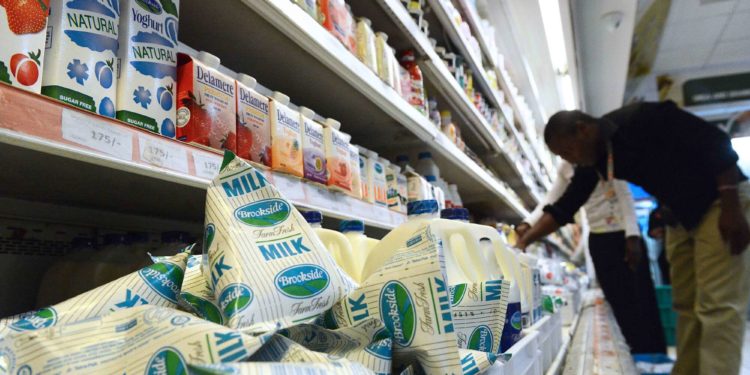Politics and business are inseparable. These are the sentiments of Prof. X.N. Iraki, an economics lecturer at the University of Nairobi.
“It’s hard to separate politics and economics in the dairy industry after what some politicians have said in the past. But protectionism, like subsidies, is old economics. We should let the market do its work.”
This is more evident now than in the ongoing trade dispute between Kenya and Uganda’s milk exporters. Uganda has long been a major milk supplier to Kenya, but this has recently hit a speedbump with many Ugandan exporters and producers complaining that the Kenyan government has limited the number of export permits available to them and processing them at a slower pace.
They argue that the Kenya Kwanza government is targeting them due to its ongoing tiff with the retired President Kenyatta, whose family has ties to Brookside Uganda, one of the largest milk producers in Uganda.
They argue that this has, in turn, affected trade with the Kenya Kwanza government targeting them in a bid to punish the former president. This has created uncertainty, with Ugandan producers afraid that their products will go bad, while the citizens are skittish due to the high milk prices in Kenya.
I agree with Prof. Iraki that politics and business are inseparable. However, it should be the government’s target that politics is not used as a weapon to target its citizens, no matter their political affiliation. What is even worse is that these politically-motivated actions have the unintended effect of harming the citizens, reminiscent of the Swahili proverb “fahali wawili wakipigana, nyasi ndizo huumia.”
Kenyans are already bearing the brunt of high food prices, and the worsening exchange rate only exacerbates this. Couple that with a trade spat, and prices rise through the roof, eating up whatever measly gains households have made.
In school, we learned something in International and Trade economics called ‘Comparative advantage.’ In the trade cycle, countries focus on producing the product they have an advantage over others. In this case, Uganda has a comparative advantage whereby they have more arable land that can support dairy cattle; they have lower production costs, including labor, compared to Kenya. So it makes sense for us to import from them as it is cheaper and sells to them products we have an advantage in producing.
Of course, government supporters will say that this move is not politically-motivated but rather a means of protecting local producers. However, if we are honest with ourselves, such protectionist measures harm us more than good. We have some of the highest production costs in the East African region. We also do not have much arable land compared to our neighbors, so the cost of fertilizer and irrigation would add to the cost and subsequently be passed on to the consumers.
I would urge the government to take the issue of regional integration seriously. Regional integration does not only help our neighbors but ourselves. We must consider what imposing Non-Tariff-Barriers to trade will have on our economies; countries may choose to avoid dialogue altogether and impose their barriers, hurting our local industries. So who loses out, then?
Protectionism didn’t help early 20th-century America; it certainly won’t help us in this heavily globalized world. The government actors should be better custodians of Kenyans’ welfare, and especially in these tough times, it should put aside the idea of punishing the outgoing president at the expense of a majority of Kenyans struggling to make ends meet.












